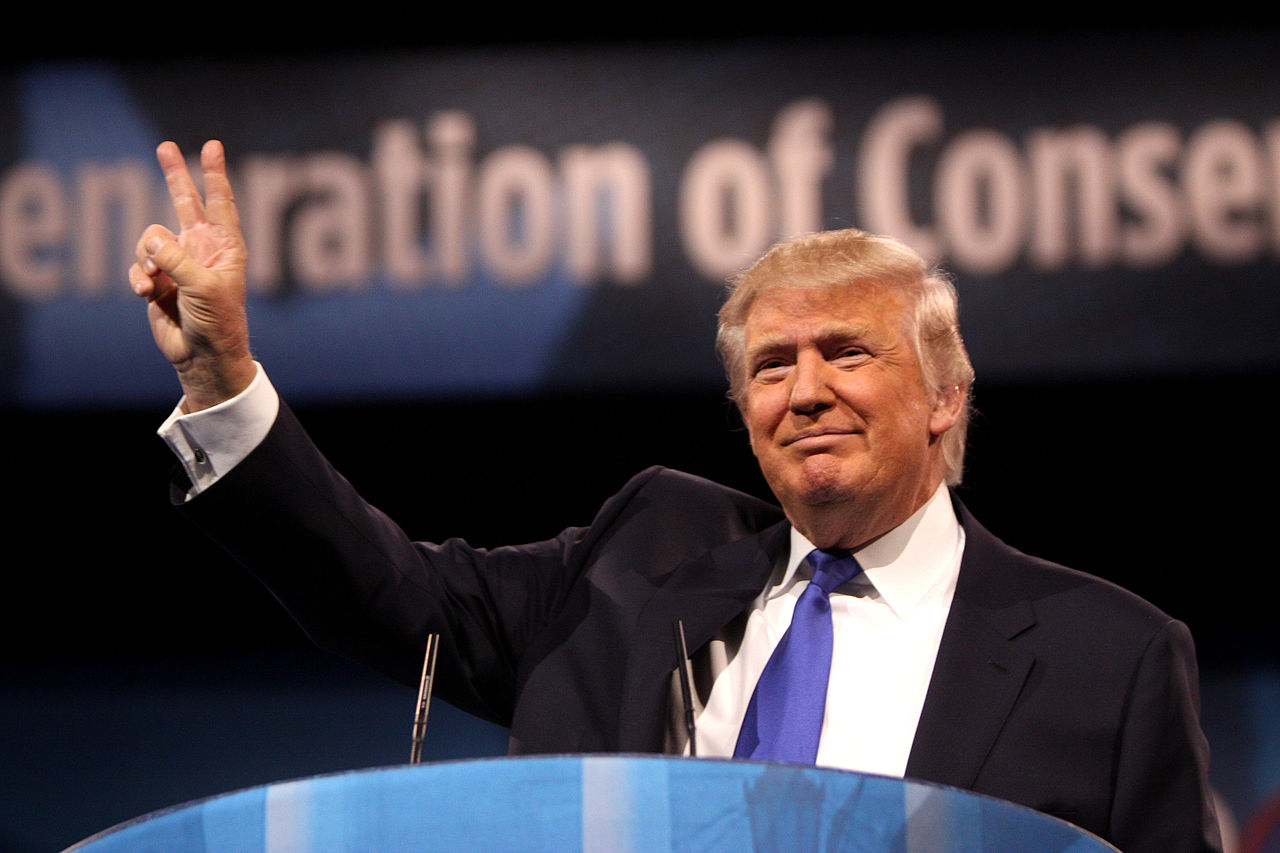Everything You Need To Know About A Brokered Convention
Kelli Bamforth
As a brokered convention becomes more likely, the Republican Party isn’t laughing anymore.
As Donald Trump’s performance during primary season puts him closer and closer to becoming the Grand Old Party’s presidential nominee, some established Republican leaders – Mitt Romney included – are exploring the possibility of stopping Trump at the Republican National Convention in July. Provided the television-personality-turned-politician doesn’t lock up the nomination before then, of course.
Party insiders are considering forcing a brokered convention, which would allow the GOP to select a new nominee who better reflects the Party’s core values. While such a scene may call to mind the backroom machinations featured in “House of Cards,” such maneuvering is well within convention guidelines.
“Trump is stoppable, according to the rules,” writes Jonah Goldberg, a senior editor for National Review. “And if he is stopped and that makes you sad, don’t hate the players, hate the game.”
Here’s what we know about how the game is played:
What is a brokered convention?
Also referred to as a contested or open convention, a brokered convention occurs when no presidential candidate has captured a simple majority of delegates before the first floor vote at his or her party’s nominating convention. For the Republican Party, the magic number of delegates – those decided through primary elections and caucuses, along with superdelegates – is 1,237.
What’s the difference between a “contested” convention and a “brokered” convention?
Though the terms are often used interchangeably, a contested convention differs from a brokered convention. A convention can be described as “contested” if no candidate finishes the primary season with a majority of delegates. According to CNN, the last contested GOP convention took place in 1976 when President Gerald Ford and opponent Ronald Reagan both failed to achieve the necessary majority before the convention began. However, because Ford secured a majority just prior to the first floor vote, the convention wasn’t technically considered to have been “brokered.”
The most recent brokered GOP convention happened in 1948. New York Gov. Thomas Dewey arrived in Pennsylvania with the most delegates, but only became the nominee on the third ballot after dodging major challenges from Sen. Robert Taft and former Gov. Harold Stassen. (Dewey ended up losing the presidency to Harry Truman.)
What is the history of brokered conventions within the Republican Party?
Since the GOP’s first convention in 1856, there have been 10 presidential elections in which no Republican candidate came into the convention with a majority of delegates. In seven of those elections, the eventual nominee was not the person who had the most delegates at the start of the convention. Of those 10 brokered conventions, six of them produced a Republican nominee who went on to win the general election.
Since 1952, no convention – Republican or Democratic – has gone beyond the first ballot.
What are the causes of a brokered convention?
When a race is essentially uncontested (i.e. there’s an incumbent president) or consists of just two major candidates, the primary season usually produces a winner acceptable to party leaders long before the convention begins. But when there are three or more candidates with enough delegate support to prevent one from capturing an outright majority, it opens the door to a possible brokered convention.
Although Trump has won more states so far, the race to become the nominee is still (relatively) up for grabs between him and Sens. Marco Rubio (FL) and Ted Cruz – or another candidate entirely, according to Steffen Schmidt, political science professor at Iowa State University.
“If it’s gridlocked and paralyzed, and there’s nobody who wants to give their support to any of the damaged goods – which is what these guys are going to be by the time they get to the convention – then that’s when the possibility an outsider, like Romney, would start to be considered,” Schmidt told ThinkProgress.
How does a brokered convention actually work?
Every primary or caucus ends with a distribution of delegates. Some states are winner-take-all while others reward delegates proportionally, giving the greatest number of delegates to the candidate who receives the most votes. Delegates are sent to the convention with instructions from party officials to vote for their assigned candidate – but only on the first ballot. In subsequent voting rounds, delegates are free to vote how they wish.
That’s when negotiations would begin, although it’s unclear exactly how that would play out in 2016. In previous brokered conventions, party bosses haggled and made deals about where votes should go. The problem is that system no longer exists, which means unpredictable conflict – over votes, convention rules and who knows what else – would play out between delegates and candidates on national television and social media.
Regardless of how things unfold, the voting would continue until one candidate secured the required majority. While no one can predict how long that might take, the most notable example of a brokered convention transpired with the Democrats in 1924. By the time John Davis emerged as the nominee that year, 102 ballots had been cast.
What would a brokered GOP convention mean for the Republican Party and the presidential election?
Should Trump arrive at the convention with the greatest number of delegates and leave without the nomination, there’s a chance the businessman will mount a third-party run with the goal of drawing votes away from the Republican nominee. The GOP also runs the risk of alienating Trump’s millions of supporters, not just in the 2016 general election, but for years to come.
Michael Steele, former chairman of Republican National Committee, had stronger words for what a brokered convention could mean for Republicans:
“If they want to monkey around with this process and try to fix [the nomination], they’re asking for all hell to break loose.”
Follow Kelli on Twitter.
March 13, 2016
